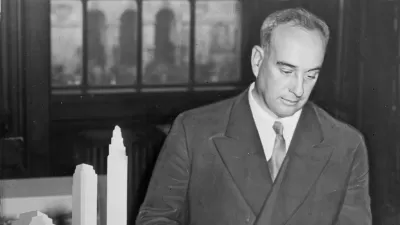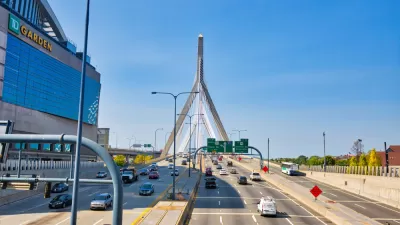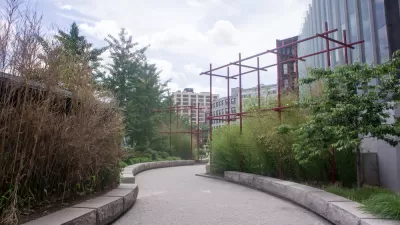Transportation policy expert, Ken Orski, takes a different perspective in his column, "Living in Denial". Rather placing the blame on the American public and lawmakers denying the infrastructure crisis, he applies it to the transportation community.
Despite two Congressional commissions and two former DOT Secretaries warning of the transportation funding crisis and its implications on Oct. 4, on top of a 2007 interstate highway bridge collapse killing 13 people, Ken Orski notes that Americans are largely unaware and/or uninterested in addressing America's deteriorating transportation infrastructure.
"It may be impolitic to suggest it, but dire warnings about the sorry state of the nation's infrastructure seem to come largely from organized interests - stakeholders and advocacy groups... But rightly or wrongly, congressional lawmakers often discount cries about "crumbling infrastructure" as self-serving demands for more government money...
Lawmakers witness New Jersey voters strongly approving Governor Chris Christie's decision to cancel work on the long-planned rail tunnel under the Hudson River because, says the Governor, "the state simply doesn't have the money" to pay for overruns in the potential $9-14 billion project. "
"As one of our colleagues, a sincere and lifelong transportation advocate, put it, "the transportation community is mostly talking to itself and living in denial about the changing political mood." That mood-in the nation at large as well as in the next Congress- is unmistakably becoming more conservative and skeptical of big government."
Thanks to Ken Orski
FULL STORY: Living in Denial

Study: Maui’s Plan to Convert Vacation Rentals to Long-Term Housing Could Cause Nearly $1 Billion Economic Loss
The plan would reduce visitor accommodation by 25,% resulting in 1,900 jobs lost.

North Texas Transit Leaders Tout Benefits of TOD for Growing Region
At a summit focused on transit-oriented development, policymakers discussed how North Texas’ expanded light rail system can serve as a tool for economic growth.

Why Should We Subsidize Public Transportation?
Many public transit agencies face financial stress due to rising costs, declining fare revenue, and declining subsidies. Transit advocates must provide a strong business case for increasing public transit funding.

How to Make US Trains Faster
Changes to boarding platforms and a switch to electric trains could improve U.S. passenger rail service without the added cost of high-speed rail.

Columbia’s Revitalized ‘Loop’ Is a Hub for Local Entrepreneurs
A focus on small businesses is helping a commercial corridor in Columbia, Missouri thrive.

Invasive Insect Threatens Minnesota’s Ash Forests
The Emerald Ash Borer is a rapidly spreading invasive pest threatening Minnesota’s ash trees, and homeowners are encouraged to plant diverse replacement species, avoid moving ash firewood, and monitor for signs of infestation.
Urban Design for Planners 1: Software Tools
This six-course series explores essential urban design concepts using open source software and equips planners with the tools they need to participate fully in the urban design process.
Planning for Universal Design
Learn the tools for implementing Universal Design in planning regulations.
City of Santa Clarita
Ascent Environmental
Institute for Housing and Urban Development Studies (IHS)
City of Grandview
Harvard GSD Executive Education
Toledo-Lucas County Plan Commissions
Salt Lake City
NYU Wagner Graduate School of Public Service





























